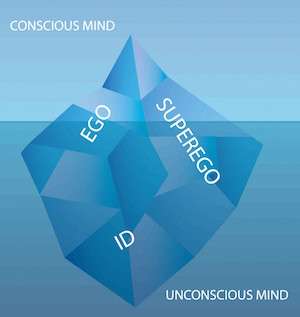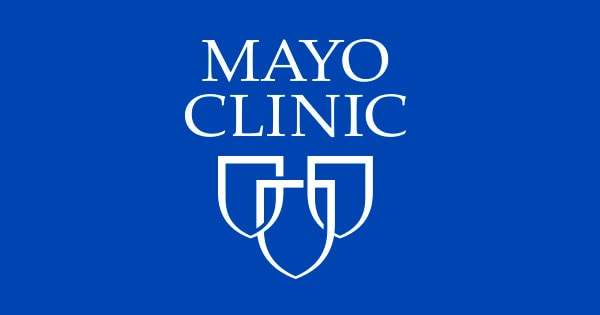During the past three decades, counseling scholars and practitioners have argued that multicultural competence is a central concern to working effectively with diverse clients and to providing culturally responsive counseling environments. Counselors and clients both bring to the therapeutic relationship a constellation of identities, privileged and marginalized statuses, and cultural values, beliefs and biases to which counselors need to attend. Furthermore, clients increasingly bring to counseling issues of inequity that lead to unhealthy risk factors.
The Multicultural and Social Justice Counseling Competencies (MSJCC), developed by a committee consisting of Manivong J. Ratts, Anneliese A. Singh, Sylvia Nassar-McMillan, S. Kent Butler and Julian Rafferty McCullough in 2015, seek to address these issues. Carlos Hipolito-Delgado commissioned the committee during his tenure as president of the Association for Multicultural Counseling and Development (AMCD), a division of the American Counseling Association. Both  AMCD and ACA have endorsed the competencies, which can be found at counseling.org/knowledge-center/competencies. Their endorsement signifies the need to integrate multicultural and social justice competencies into all aspects of the counseling profession.
AMCD and ACA have endorsed the competencies, which can be found at counseling.org/knowledge-center/competencies. Their endorsement signifies the need to integrate multicultural and social justice competencies into all aspects of the counseling profession.
Built upon the original Multicultural Counseling Competencies (MCC) developed by Derald Wing Sue, Patricia Arredondo and Roderick J. McDavis in 1992, the MSJCC represent emerging multicultural and social justice factors within our global society. The original MCC focused on attitudes, knowledge and skills as the foundation of multicultural competence and were geared toward “majority” counselors working with “minority” clients.
Nearly 25 years later, however, it is clear that the range of diversity, particularly considering the salience of intersectional identities, is truly endless. For example, it is not uncommon for marginalized counselors to work with privileged clients in today’s world. The MSJCC provide a framework for addressing the constellation of identities that clients and counselors bring to the therapeutic relationship. The MSJCC also set the expectation that counselors address issues of power, privilege and oppression that impact clients. Moreover, the MSJCC require counseling professionals to see client issues from a culturally contextual framework and recommend interventions that take place at both individual and systems levels.
In this article, we are highlighting the practical application of the MSJCC in counseling and share how they may be used in conjunction with other ACA-oriented multicultural and social justice competencies. We also emphasize implications for the use of the MSJCC. The January issue of the Journal of Multicultural Counseling and Development (JMCD) provides a more detailed description of the theoretical underpinnings of the MSJCC.
Conceptual framework
The conceptual framework of the MSJCC illustrates the major concepts related to developing multicultural and social justice competence. At the core is the belief that multiculturalism and social justice should be at the center of all counseling. This conceptual framework also introduces new terminology with which it is important for counselors to familiarize themselves: quadrants, domains and competencies.

Quadrants: Quadrants reflect the complex identities and the privileged and marginalized statuses that counselors and clients bring to the counseling relationship. Clients and counselors are both members of various racial, ethnic, gender, sexual orientation, economic, disability and religious groups, to list a few. These identities are categorized into privileged and marginalized statuses. A client or counselor may hold either status or both statuses simultaneously. These statuses are prevalent depending on how each individual is experiencing the current interaction.
Being attentive of these statuses highlights how issues of power, privilege and oppression play out between counselors and clients. The interactions are categorized into four quadrants:
- Quadrant I: Privileged Counselor–Marginalized Client
- Quadrant II: Privileged Counselor–Privileged Client
- Quadrant III: Marginalized Counselor–Privileged Client
- Quadrant IV: Marginalized Counselor–Marginalized Client
Conceptually, client and counselor interactions may fit into the quadrants in numerous ways. They reflect the fluidity of identities and how the dynamics of power, privilege and oppression impact the counseling relationship.
For example, a gay male counselor of color and a heterosexual female client of color may experience their interaction through various lenses. They both may perceive their interaction to stem from Quadrant IV because of shared racial identities — a common experience with respect to issues of racism. Alternatively, the client may consider their interaction from a Quadrant I perspective because of gender differences. The client may feel displaced and at a disadvantage because of the counselor’s male privilege. Another possibility is that the counselor might identify with Quadrant III because of their differences in sexual orientation. In such a scenario, the counselor may be placed at a disadvantage because of the client’s heterosexual privileges.
Domains: Domains are intended to be developmental in nature, and they focus on progressive levels of multicultural and social justice competence. The domains are:
1) Counselor self-awareness
2) Client worldview
3) Counseling relationship
4) Counseling and advocacy interventions
Counselor self-awareness is important for identifying one’s cultural values, beliefs and biases. This insight assists in identifying one’s worldview and hot-button issues that may interfere with helping clients. Second, being cognizant of a client’s cultural values, beliefs and biases may help counselors understand clients’ worldviews and identity development. Next, being aware of the extent to which shared and unshared identities; privileged and marginalized statuses; values, beliefs and biases; and culture influence the counseling relationship may be important in determining appropriate evidence-based treatment interventions. When counselors possess self-awareness, are attuned to clients’ worldviews and are cognizant of how this shapes the counseling relationship, they are better equipped to respond to client needs.
To respond effectively, the MSJCC set the expectation that counselors understand the sociocultural systems that are affecting their clients’ sense of well-being and address the corresponding issues appropriately. To this end, the socioecological model is embedded within the counseling and advocacy interventions domain to provide a framework for interventions and strategies at the interpersonal, intrapersonal, institutional, community, public policy and international/global levels. Moreover, the levels allow counselors to see client issues more contextually and aid in determining whether targets for health promotions need to occur individually or systemwide.
At the intrapersonal level, counselors who are multicultural and social justice competent discuss their own cultures and identities, inquire about their clients and provide open conversations related to how, collectively, privileged and marginalized identities might work to enhance or barricade the counseling relationship. It is essential that counselors are willing to authentically bring this discussion into the room. Such discussions can help counselors gain rich insight into their clients’ cultural backgrounds. Clients and counselors who engage positively in this dynamic may increase mutual trust and enrich the therapeutic alliance.
An important factor at the intrapersonal level is the exploration of client experiences with microaggressions and discrimination. Counselors can help clients develop critical consciousness around experiences with racism, sexism, ableism, classism, religious oppression, homophobia or transphobia and so on. This, in turn, helps clients externalize their oppression. Using culturally appropriate, empowerment-based frameworks and techniques to help clients express powerful feelings of anger or despair resulting from frequent experiences with discrimination and oppression is crucial to improving one’s mental wellness.
At the interpersonal level, counselors who are multicultural and social justice competent take initiative to explore client relationships with family, friends, co-workers and their communities. This work may occur inside or outside of “the office.” For example, counselors may step out of the comfort of their office settings to talk directly with individuals in their clients’ lives (with client permission). This approach may help to identify individuals who support or obstruct client progress.
Relatedly, it is critical to help clients develop networks with caring individuals who share a similar privileged or marginalized identity and with whom they identify. Examples include helping an African American client to connect with an African American student group such as a sorority or fraternity. White clients might find it beneficial to be in an organization in which other White individuals are doing anti-racism work. This exploration process may be enhanced when counselors take the time to attend these meetings with clients. Stepping outside the office setting and working alongside clients will likely create discomfort for counselors who are traditionally trained.
At the institutional level, multicultural and social justice counselors focus their efforts on institutional rather than individual change. Counselors may initially inquire about the climate within a client’s workplace, community organizations or school. For example, a counselor can ask a client, “What is it like being the only Latina woman in a predominately White workplace?” or “How is it to navigate your workplace as a person with a disability?” Counselors could take it a step further by conducting needs assessments of their clients’ workplaces or schools to determine the extent to which these organizations are supportive of the clients. This strategy involves collaborating with clients and their workplaces or schools to conduct a climate survey.
Counselors may also advocate for clients by connecting them to supportive people within institutions who may be instrumental in helping to reduce inequities that clients experience. As change agents, counselors can work to improve climates within agencies, schools or organizations that inhibit client growth and feelings of well-being. For example, a professional school counselor might advocate with, and on behalf of, students who miss valuable instruction time because they use wheelchairs and cannot get to class on time due to overcrowded hallways and a lack of automatic doors. Similarly, a clinical mental health counselor might attend a meeting as an ally at the client’s place of employment to discuss equity issues affecting the client’s work environment.
At the community level, multicultural and social justice counselors focus their attention on the norms and values in society and the influence of these factors on clients’ well-being. It is important for counselors to discuss how clients believe that others perceive them and if they think that society holds negative stereotypes or attitudes about their membership in a privileged or marginalized group.
For instance, a counselor might explore, through societal lenses, the difficulties that a nontraditional female student faces when she doesn’t feel that her mostly male cohort takes her seriously as a medical student. The counselor could explore with the client the societal perceptions of women in science and math fields and the added pressure of having to prove herself repeatedly to male classmates. Creating informative websites may be another positive way to bring the issue to public awareness. Counselors may also use broader social advocacy strategies to vocalize support for women in general or back their participation in male-dominated careers, thus transforming public perception of their strengths and capabilities. Lastly, counselors can conduct research that identifies societal perceptions of particular women groups, explore the impact of these discernments and investigate how to mediate negative attitudes toward them.
At the public policy level, multicultural and social justice counselors focus on the rules, laws and policies that impact clients and other members of their group. This work may involve altering oppressive laws and policies or helping to create more-inclusive policies. An example could include focusing on issues faced by a female transgender client who is forced by city or state laws to either use the public restroom of the gender recorded on their birth certificate or face legal consequences. The counselor might advocate with, or on behalf of, the client by using the counselor’s cisgender (person who is not transgender) privilege to work with city officials to alter policies and practices that are oppressive toward transgender people. Furthermore, counselors, along with their local counseling organizations and legislators, may help to create policies and laws that do not discriminate against the transgender population and other sexual and gender minorities who constantly feel the brunt of stigmatization.
At the international/global level, multicultural and social justice counselors stay current and understand the impact that international activities may have on clients. For instance, the November terrorist incident in Paris involving the Islamic State may create toxic conditions in which Middle Eastern clients in the United States experience a significant increase in discrimination. In addition to discussing the impacts on clients, it would be essential for counselors to increase their knowledge and seek professional development that furthers their understanding of the political and historical contexts surrounding such occurrences. This knowledge may in turn equip counselors with the ability to work with other community leaders to create programs that ward off potential hate crimes.
Competencies: Counselors who are multicultural and social justice competent are in a constant state of developing attitudes and beliefs, knowledge, skills and action (AKSA) that allow them to effectively work with clients from a multicultural and social justice framework. The AKSA competencies are embedded within the counselor self-awareness, client worldview and counseling relationship domains described above.
Attitudes and beliefs refer to possessing awareness of the values, beliefs and biases that counselors possess about themselves and their clients. Knowledge denotes counselors being well-informed on the complexities surrounding counselor and client identity development, worldviews, the nuances of culture and the positive and negative effects of privileged and marginalized statuses. Skills refer to counselors’ abilities to tailor interventions that align with the cultural worldview of clients. Action refers to counselors taking steps to operationalize attitudes and beliefs, knowledge and skills with clients. The action component, also endorsed by Allen Ivey, Mary Ivey and Carlos Zalaquett, is based on the belief that possessing attitudes and beliefs, knowledge and skills is not enough if these competencies are not operationalized.
Using the MSJCC in tandem with other competencies
Counselors can use the MSJCC alongside other ACA competencies to provide culturally responsive counseling and contextually appropriate interventions. The ACA Advocacy Competencies, which emerged out of Counselors for Social Justice, another division of ACA, were developed to describe how counselors might advocate with clients or on behalf of clients. These competencies further delineate the micro (e.g., student, client), meso (e.g., school, community) and macro (e.g., public arena, public policy) levels of advocacy that counselors may use.
As discussed earlier, the MSJCC embed action within counseling competence, with the expectation that counselor awareness, knowledge and skills are linked to counselor action in addressing issues of privilege and oppression when working with a wide variety of social identities espoused by clients. Therefore, in essence, the MSJCC extend the advocacy competencies to a more comprehensive approach that works with clients and continues outside of the duration of counseling. However, the advocacy competencies still have value, and counselors can consult these competencies together with the MSJCC to identify the most effective levels of action intervention. Interventions should be in collaboration with clients (e.g., developing self-advocacy skills) or on behalf of clients (e.g., advocating for gender-inclusive bathrooms for transgender people).
The Association for Specialists in Group Work (ASGW), another ACA division, developed the Multicultural and Social Justice Principles of Group Work to revise an earlier document titled “Principles for Diversity-Competent Group Workers.” Similar to the need to revise the AMCD multicultural competencies, ASGW was supportive of efforts to integrate multicultural and social justice principles into one document guiding the development of competence in leading group work. Counselors may use the MSJCC to guide both individual and group work with clients, using the MSJCC model to identify social identities of similarity and difference with clients, while also using the three domains of the ASGW Multicultural and Social Justice Principles of Group Work to explore the specific development of multicultural and social justice competence when facilitating group modalities. The three domains of these principles include the awareness of self and group members, strategies and skills (with two sub-domains: group worker planning and group worker processing), and social justice advocacy.
The MSJCC focus specifically on awareness, knowledge, skills and action that counselors should develop in multicultural and social justice competence. Meanwhile, the ACA Competencies for Counseling With Transgender Clients and the Association for Lesbian, Gay, Bisexual and Transgender Issues in Counseling Competencies for Counseling LGBQQIA Individuals explore this competence within CACREP training domains (e.g., social and cultural foundations, assessment) when working with transgender and lesbian, gay, bisexual, queer, questioning, intersex and ally (LGBQQIA) clients. Counselors may therefore use the MSJCC model to identify the privilege and oppression identities of counselor and client, while using the transgender and LGBQQIA competencies to examine these identities specifically within sexual orientation and gender identity.
Other ACA division competencies also exist (see counseling.org/knowledge-center/competencies). The extent to which these competencies specifically address or embed multicultural and social justice competencies varies. When using these competencies, the MSJCC will help counselors specifically give attention to the multiple issues of privilege and oppression that influence counselor awareness, knowledge and action competence.
Summary
The MSJCC provide:
- A comprehensive framework for viewing one’s attitudes about newly emergent populations
- A fresh start for looking at the worldviews of populations with whom one may come in contact and provide counseling services for daily
- An opportunity to examine the impacts of these internalized attitudes and, taken together with client worldview, delve into the influences those dual dynamics have on the counseling relationship, both in traditional and broader senses
Thus, the aspirational quality of the MSJCC is critical in every single counseling encounter. In mental health and school settings, we may continue to serve clients from marginalized groups, and they may continue to overrepresent traditionally beleaguered populations. However, the way oppression is manifest in today’s world is ever-changing. For example, recent immigrants, whether documented or undocumented, face daily persecution. Others might belong to refugee groups that have been oppressed in their countries of origin and come to the United States only to face new subjugations.
Moreover, the expansion of the counseling role, beyond the actual traditional relationship and into a role of advocacy and social action as an expectation of the profession, creates room for stretching and growth on the part of counselors and their delivery models and systems. For example, should a counselor note an inherent bias within the agency structure, a learning curve might exist in terms of figuring out whom to talk to or what actions to take to create change. Consequently, some personal risk to one’s job security may be present in taking such action.
Regarding community action, this role involves a new set of activities on the part of counselors to identify and network with community leaders and become involved with community action networks. Finally, the policy level is often intimidating and overwhelming for counselors in terms of understanding policymaking players and processes. However, consider what could happen if counselors were to become activists in changing managed care, for example, through lobbying and other large-scale education efforts. Not only would clients be better served if that were to happen, but counselors could also avoid becoming caught up in their own webs of helplessness or hopelessness that often lead to professional burnout. Additionally, training gaps often exist between newly trained and veteran counselors who have served in the field for longer periods of time. With the benefit of renewed multicultural competence training, successes and changes may inadvertently serve to engage experienced counselors at new levels, inspiring them to continue striving for multicultural and social justice competence.
****
Manivong J. Ratts, Anneliese A. Singh, S. Kent Butler, Sylvia Nassar-McMillan and Julian Rafferty McCullough served on the committee that developed the Multicultural and Social Justice Counseling Competencies.
Letters to the editor: [email protected]




